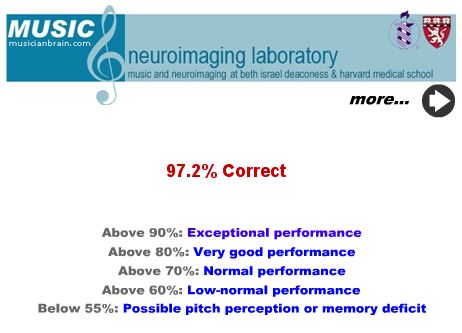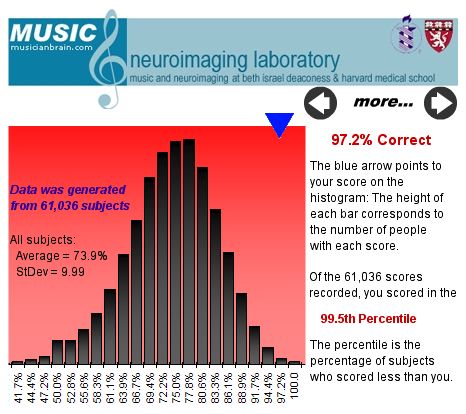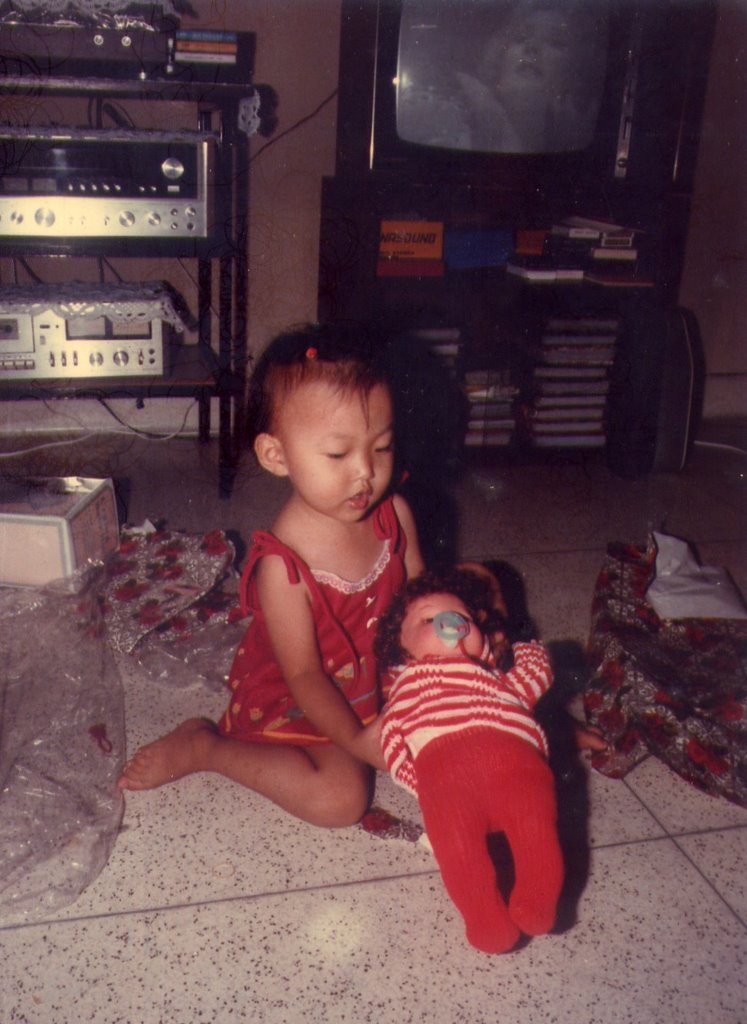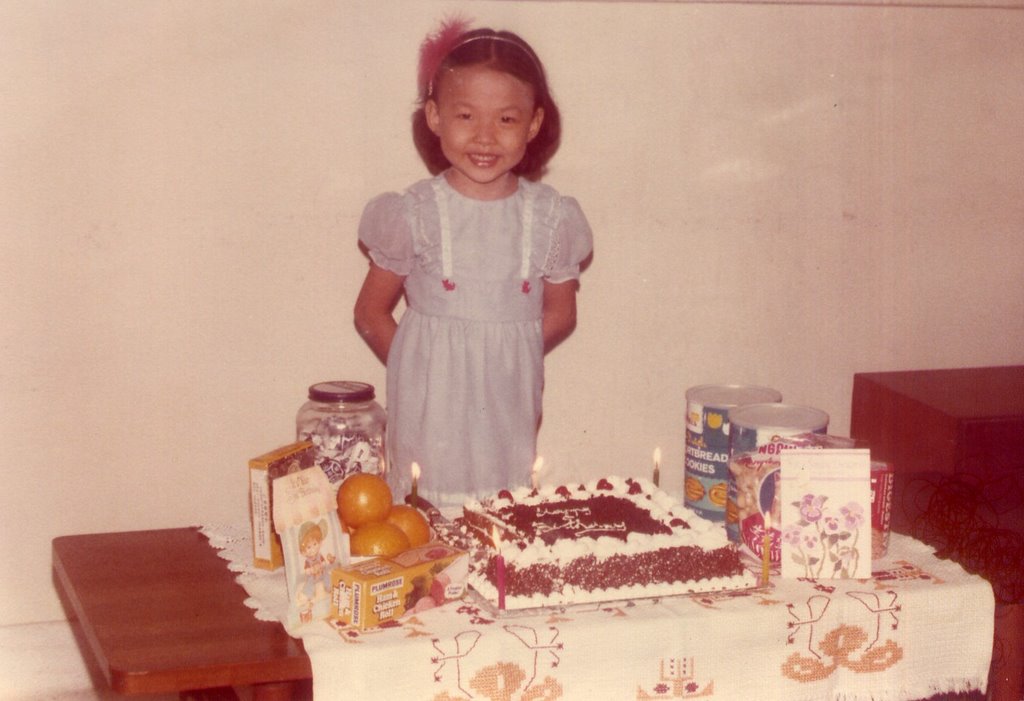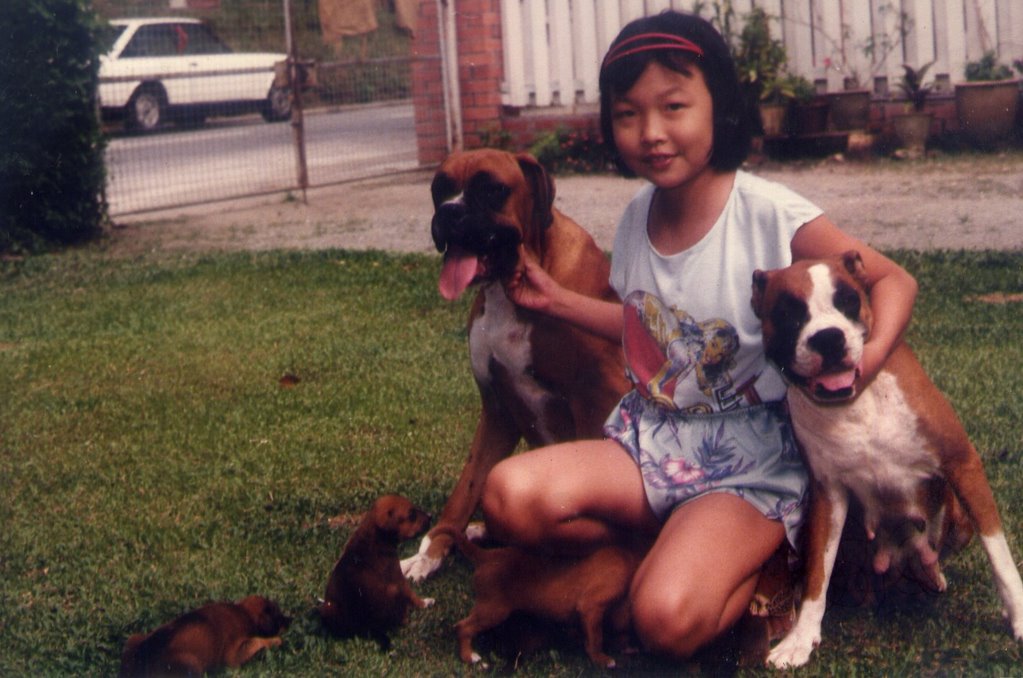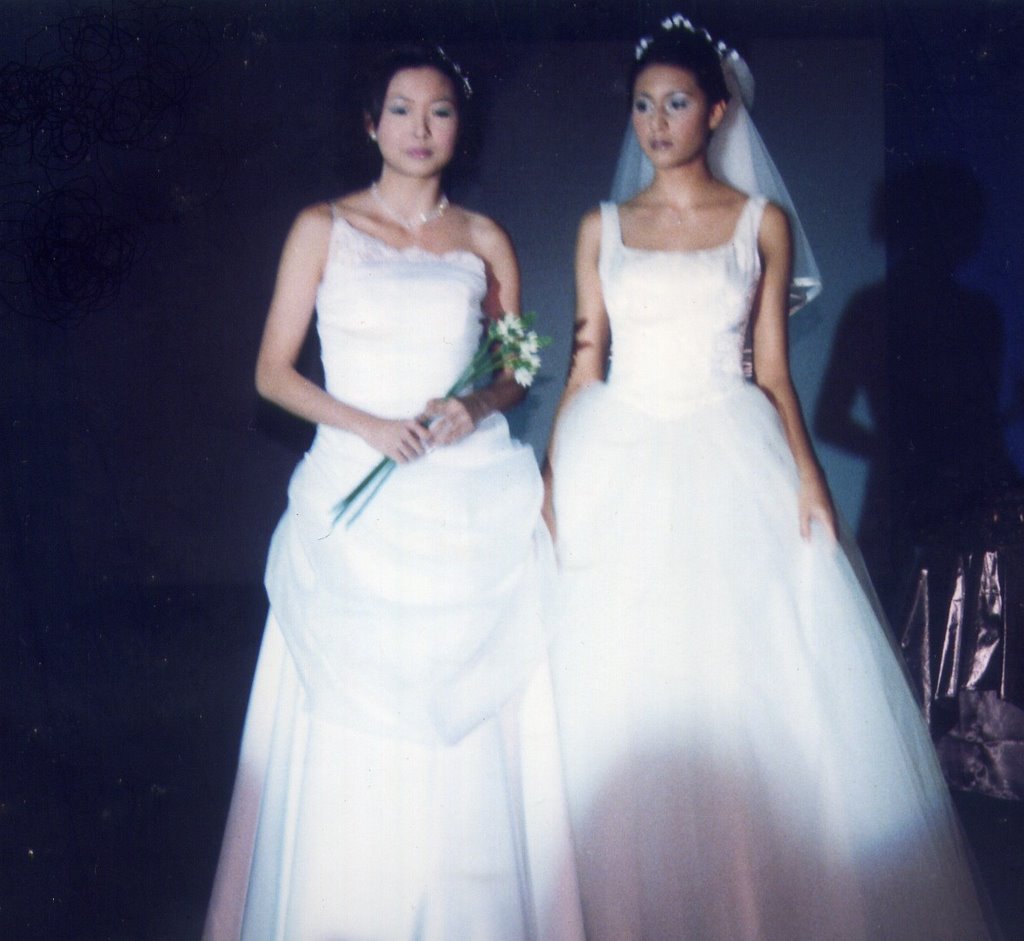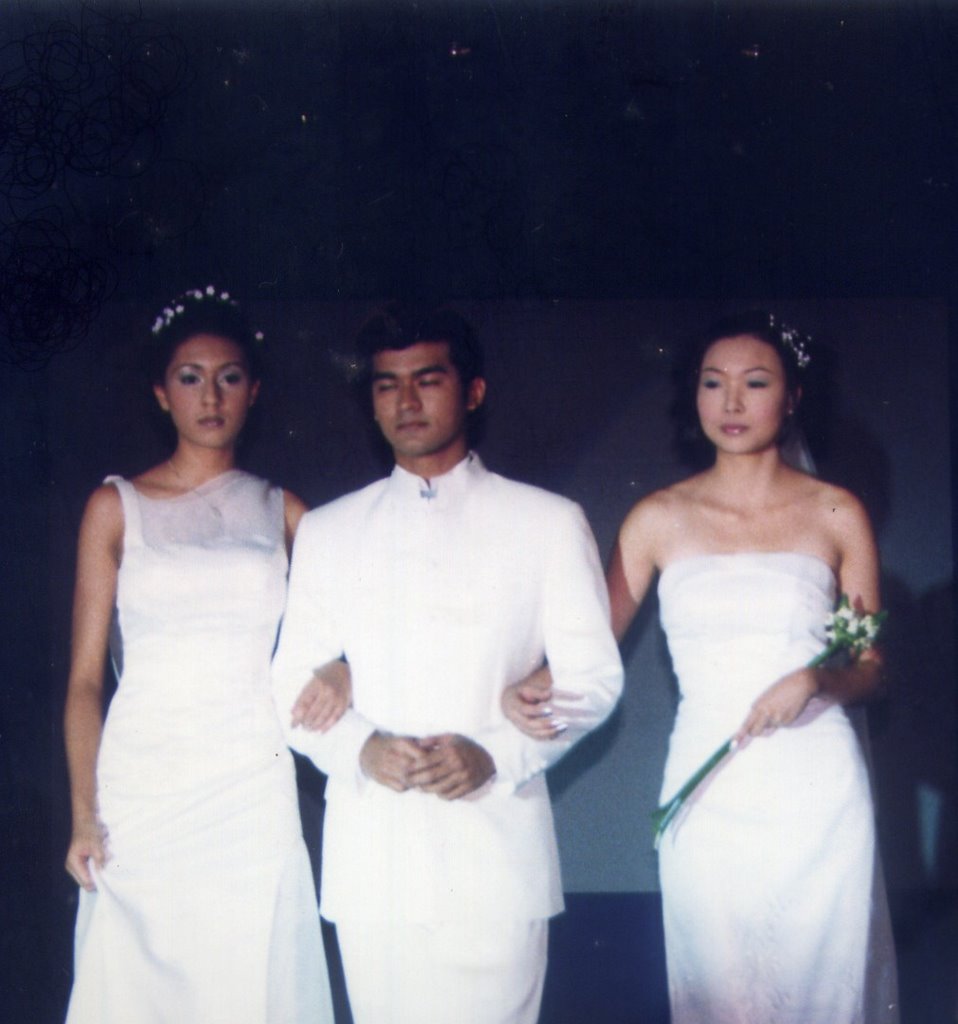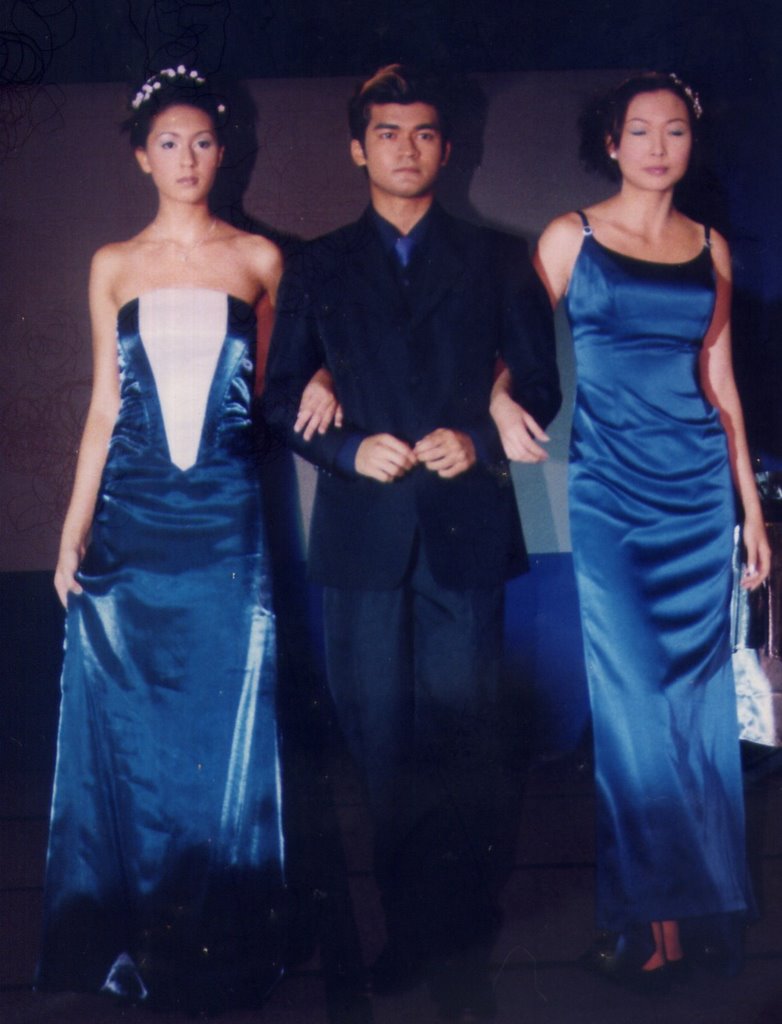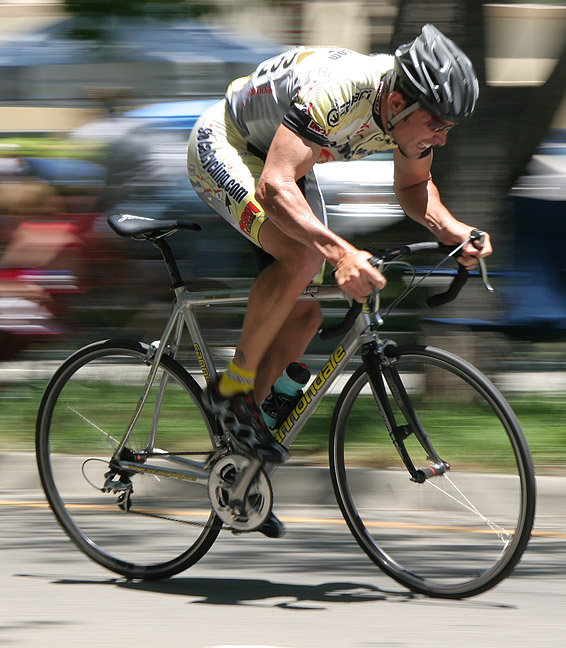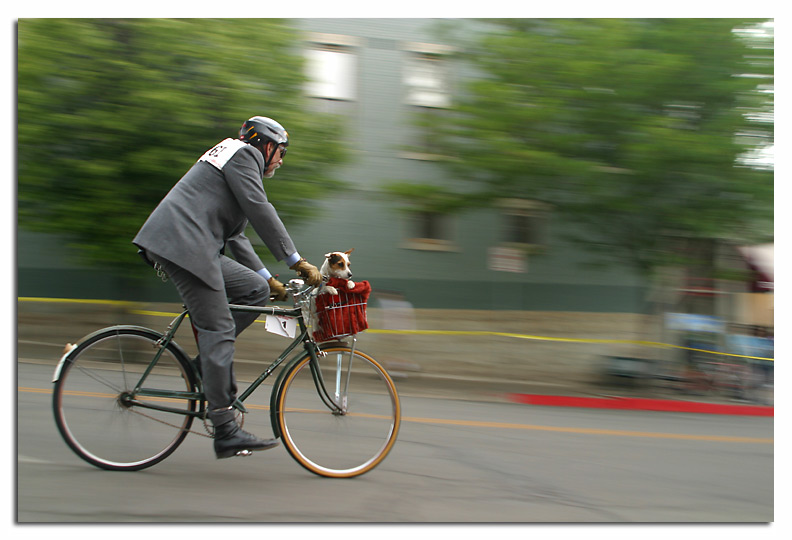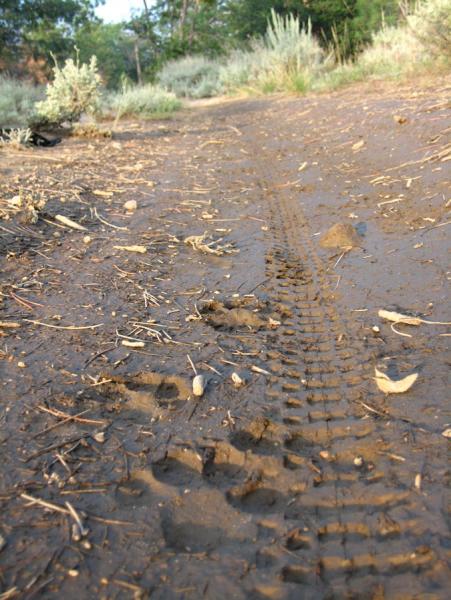[Lengthy post but you may choose to skip food and drink while reading this. Wherever possible, excerpts are provided. Click on "Source" at the end of each section for the complete article.]
In
a post on November 20, 2005, I wrote:
In my opinion, when a society or culture treats animals with such unflinching cruelty, it will only be a matter of time before people are treated in the same manner. All too often, people forget that they too, are animals.Recalling
the fur industry in China (video), along with the unfettered and rampant
consumption of exotic animals (e.g.
sharks' fins, bear paws,
bear bile, pangolins, tigers, turtles, rhinos, owls, civet cats, etc), this is the foreseeable outcome of a culture that views everything—land, air, sea, animals, fellow humans—as consumable, expendable, disposable. Another
video (warning: graphic images).
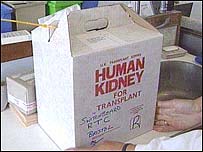 China admits taking executed prisoners' organs
China admits taking executed prisoners' organsDemand is high, and supply is low -- except on death row; the nation leads worldwide in capital punishment.
By Mark Magnier and Alan Zarembo, Times Staff Writers
November 18, 2006
BEIJING — After years of denial, China has acknowledged that most of the human organs used in transplants here are taken from executed prisoners and that many of the recipients are foreigners who pay hefty sums to avoid a long wait.
Speaking at a conference of surgeons in the southern city of Guangzhou, Deputy Health Minister Huang Jiefu called for a strict code of conduct and better record-keeping to stem China's thriving illegal organ trade, state media reported.
"Apart from a small portion of traffic victims, most of the organs from cadavers are from executed prisoners," Huang said Tuesday, according to a report Thursday in the English-language China Daily newspaper.
"The current big shortfall of organ donations can't meet demand," Huang said.
The acknowledgment of what had been an open secret online, in local magazines and among people awaiting transplants came about two weeks after China announced it would tighten oversight of capital cases, requiring that death sentences be approved by the country's highest court. Legal experts estimate that will reduce executions by a third.
Though China doesn't disclose the number of annual executions, Amnesty International says at least 1,770 people were put to death in 2005, based on a review of Chinese media reports. Some activists say the annual figure could be as high as 10,000.
The lower estimate represents more than 80% of at least 2,148 that Amnesty International says took place worldwide last year. The United States executed 60 prisoners.
In July, China ruled that all sales of organs were illegal. But enforcing its decrees can be a problem, especially when substantial profits are involved.
In September 2004, local media reported that well-known comedian Fu Biao spent more than $36,000 for a liver from an executed prisoner in Shandong province. And starting in June 2005, reports surfaced on the Internet of retinas and kidneys taken from executed gang members without their consent in Henan province near Beijing.
Americans are among the foreigners who have headed to China for transplants as the waiting time for kidneys and livers has grown in the United States. U.S. transplant doctors say the majority seem to be patients of Chinese ancestry who feel comfortable navigating the medical system here.
One of them was Mabel Wu, 69, of Northridge, who received a kidney in July at the Hemodialysis and Organ Transplantation Center of the Taiping People's Hospital in Dongguan, a city in Guangdong province.
Dr. Gabriel Danovitch, Wu's kidney specialist at UCLA, did not endorse her decision.
"I have concerns and suspicions about who those donors are and what consent might have been involved," he said, adding that he also had concerns about the quality of medical care.
The family paid about $40,000 for the surgery. It was told only that the donor was a 30-year-old male.
Dr. Lily Wu, who is the patient's daughter and a UCLA cancer researcher, said the surgeon had told her he was concerned about the future organ supply because the government was becoming more restrictive about the death penalty.
As a result, she suspected the kidney came from a prisoner. "I didn't want to know," she said.
Her mother said four other patients had been at the hospital recovering from kidney transplants, all of them from Taiwan, when she was there.
She flew back to California 12 days after the surgery.
"I am very happy with this transplant," she said Friday. "I got a good kidney."
A Chinese transplant doctor, Dr. Zhonghua Chen, said at a conference in Boston in July that Chinese doctors had transplanted 8,102 kidneys, 3,741 livers and 80 hearts in 2005.
Some experts estimate that well over 90% of all organs transplanted in China come from executed prisoners, given the limited supply of organs from other sources. China has no system of voluntary donor cards. Furthermore, experts say, because China defines death as a cessation in heart activity rather than brain-stem activity, there's little opportunity to recover organs from other sources.
A doctor at Beijing's prestigious Tongren Hospital, who gave only his family name of Wang, said Friday that until recently the hospital's bathrooms, tunnels and a nearby footbridge had numerous advertisements about buying and selling organs. Shortly after the new rules were announced, the hospital cleaned them up, he said.
On Friday, restrooms at Tongren boasted a new coat of light blue paint and newly installed plastic surfaces that could be easily washed or scraped clean.
Despite Beijing's record of denying the use of prisoners' organs, some Chinese defend the practice.
"It is understandable that China relies on organs of executed prisoners, given that
voluntary organ donation is not well established in China," said the doctor at Tongren.
"There simply aren't enough organs to go around," said a woman in her 50s who declined to be identified. "Saving someone's life using executed prisoner's organs is worth it. While it would be better not to, that's the reality in China."
Rules adopted in 1984 state that executed prisoners' organs can be used if the prisoner's relatives are unwilling to take the corpse or if the prisoner or his family agrees. But relatively little is known about how such organs are distributed, how organ decisions are made and which patients get preference.
Jurisdiction is a further complication. The ban on organ sales applies to hospitals answering to the Health Ministry. It is less clear whether hospitals run by the military or police — which presumably have the most access to organs given their prominent role in executions — will comply.
China in recent years has introduced mobile execution vans and lethal injection, supplanting the traditional method of a bullet to the back of the head. Beijing has touted these as more humane; critics say the changes facilitate rapid organ transfers.
Analysts said it wasn't exactly clear why China had become more willing to air its dirty laundry, but they noted that the increased openness of Chinese society was making denial of the practice more difficult.
"At some point, the skeleton in the cupboard can't be ignored anymore," said Robin Munro, a Hong Kong-based human rights activist and author of a report on the issue.
China has faced a growing call for change from many lawyers and academics. It also has been embarrassed by a chorus of overseas criticism, including a sustained campaign by Falun Gong, a spiritual movement banned in China that Beijing condemns as an "evil cult."
In July, a report by Canadian human rights lawyer David Matas and former parliamentarian David Kilgour concluded that hearts, kidneys, livers and corneas had been taken from Falun Gong practitioners and sold for large sums. The movement claims its members are executed on trumped-up charges to supply the organ trade. Beijing has denied the accusations.
"Based on what we now know, we have come to the regrettable conclusion that the allegations are true," the report says.
China also acknowledged this week the widespread practice of transplanting organs to foreigners arriving on tourist visas, though the Communist Party's newspaper said Thursday that the nation forbade medical institutions "to lure foreign tourists" for the purpose. Many foreigners can afford to pay more and jump the long queue of those waiting for transplants.
Some 2 million Chinese need transplants each year, according to state media, but only 20,000 receive them.
Analysts said they hoped attention to a long-taboo subject would help spur reform.
"The reason we're seeing people sell organs illegally is because there's a lack of legal channels," said Zhu Gongwei, an attorney at the Beijing Zhongzhao law firm. "That's led to people cutting corners for quick profit…. We need enhanced oversight, special monitoring organizations and clear rules on what hospitals can perform these surgeries."
Estimated number of executions in China in 2005: 1,770
Percentage of executions worldwide estimated to have occurred in China: 80%
Percentage of organs transplanted in China estimated to have come from executed prisoners: 90%
(
Source)
Also published in the
San Francisco Chronicle,
November 18, 2006.
---
Michael E. Parmly, Principal Deputy Assistant Secretary of State, Bureau of Democracy, Human Rights, and LaborHearing Before the Subcommittee on International Operations and Human Rights, House International RelationsWashington, DC
June 27, 2001
As you know, reports of Chinese authorities removing organs from executed prisoners in China, without the consent of the prisoners or their families, are not new. The Hong Kong and London press carried the numerous reports as early as the mid-1980s, when the introduction of the drug Cyclosoporine-A made transplants a newly viable option for patients.
Our concern about such practices is also not new. We repeatedly raised this issue with high-level Chinese officials throughout the 1990s, pressing for changes in Chinese policy and practice, and urging changes in China’s legal and medical systems to ensure the protection of individual rights and the guarantee of due process. We have also covered the issue of organ harvesting in our annual human rights report on China to put the spotlight of international attention on this issue. We consider organ harvesting from executed prisoners, without permission from family members, to be an egregious human rights abuse that violates not only international human rights law, but also international medical ethical standards.
[ . . . ]
The Department of State is also aware of reports that it cannot independently confirm, of other, even more egregious practices, such as removing organs from still-living prisoners, and scheduling executions to accommodate the need for particular organs. In addition, there are compelling first-hand reports that doctors, in violation of medical ethics codes, have performed medical procedures to prepare condemned prisoners for execution and organ removal. As former Assistant Secretary John Shattuck testified before this committee in 1998, our concern about the abhorrent practice of removing organs from executed prisoners without consent is compounded by our concerns about the lack of due process. According to Amnesty International there were 1,263 confirmed executions in 1999; according to another report 800 prisoners were executed in May 2001 alone as the government conducted another "strike hard" campaign against crime. A high court nominally reviews all death sentences, but as our Country Report on Human Rights Practices points out, and as a recent New York Times article graphically described,
the time between arrest and execution is often days or even hours. Some prisoners are taken directly from the courtroom to the execution grounds. Appeals of sentences consistently result in confirmation of sentence.(
Source)
---
Organ sales 'thriving' in ChinaThe sale of organs taken from executed prisoners appears to be thriving in China, an undercover investigation by the BBC has found.
Organs from death row inmates are sold to foreigners who need transplants.
One hospital said it could provide a liver at a cost of £50,000 ($94,400), with the chief surgeon confirming an executed prisoner could be the donor.
China's health ministry did not deny the practice, but said it was reviewing the system and regulations.
The BBC's Rupert Wingfield-Hayes visited No 1 Central Hospital in Tianjin, ostensibly seeking a liver for his sick father.
Officials there told him that a matching liver could be available in three weeks.
One official said that the prisoners volunteered to give their organs as a "present to society."(
Source)
---
China offers executed inmates' organs17:37 2005-12-20
Kidneys, livers and other organs taken from executed inmates in China are being offered for sale and transplant at military hospitals.
Earlier this month, the British health magazine Hospital Doctor broke the news, and The Telegraph then sent a reporter posing as an interested client to the southern Chinese city of Guangzhou, near Hong Kong.
There, he met with Dr. Na Ning of the Guangzhou Air Force Military Hospital.
"There is no need to bring in lawyers or consultants," Na told. "We should do the agreement on trust."
China's Health Ministry banned its own hospitals from taking part in organ transplants from prisoners after an international outcry over the practice in the 1990s, but military hospitals are independent of the Health Ministry.
Under the deal offered, British and other Western patients would be charged $40,000 for a kidney transplant. Asians pay half the Western price, but Na said Western patients get "VIP" treatment and are sure to get the "best quality" organs, UPI reports.
(
Source)
---
Doctor testifies to China’s reuse of prisoners’ organsFred Charatan,
FloridaA Chinese doctor described to a US government subcommittee last month how, when he had lived in the People’s Republic of China, he had removed body parts from executed prisoners to provide material for transplantation to wealthy patients.
Dr Wang Guoqi, a 38 year old doctor with advanced degrees in surgery and human tissue studies, was a former specialist in the burns victims unit at the Paramilitary Police Tianjin General Brigade Hospital in Tianjin. He testified to the US subcommittee on International Relations and Human Rights at a hearing last month.
The committee’s chairman, Republican representative Ileana Ros-Lehtinen of Miami, said that Dr Guoqi's testimony showed that China had "found a lucrative industry in the field of organ transplantation, which not only yields great financial rewards, but provides the regime with a powerful tool to coerce and intimidate the population into submission."
Dr Guoqi told the committee: "My work required me to remove skin and corneas from the corpses of over 100 executed prisoners, and on a couple of occasions, victims of intentionally botched executions. It is with deep regret and remorse for my actions that I stand here today testifying against the practices of organ and tissue sales from death row prisoners."He went on to describe in gruesome detail how "acquiring skin from executed prisoners usually took place around major holidays or during the government’s ‘Strike Hard’ campaigns, when prisoners would be executed in groups."
Dr Guoqi told the committee that he had "horrible recurrent nightmares" after one episode when kidneys were removed from an executed prisoner to whom he had administered a final heparin injection and who was still alive. [How different or how far removed is this from
an animal having its skin ripped off while still alive?] He tried to resign from the programme and said, "I was forced to submit a pledge that I would never expose their practices of procuring organs and the process by which the organs and skin were preserved and sold for huge profits. They threatened me with severe consequences and began to train my replacement. Until the day I left China in the spring of 2000, they were still harvesting organs from execution sites."
China’s foreign ministry spokeswoman, Zhang Qiyue, said at a news conference in Beijing the day after the hearing that Dr Wang’s testimony was "sensational lies" and "a vicious slander" against China.
Harry Wu, a well known human rights dissident and executive director of the Laogai Research Foundation, told the committee that since Amnesty International began publications of worldwide executions in 1993, China had continuously held the distinction of conducting more executions every year than the rest of the world combined.
He said, "In China, the harvesting of organs from executed prisoners proceeds as an entirely government owned and controlled operation." The government’s involvement began with the promulgation of
Rules Concerning the Dissection of Corpses in 1979 from China’s public health ministry.
Mr Wu denounced as a sham the claim that prisoners "voluntarily consented" to donate their organs, and he asserted that the doctors involved were violating basic medical ethics.
Dr Thomas Diflo, director of renal transplantation, New York University Medical Center, testified that Chinese-American patients waiting for kidney transplant operations had gone to China and received kidneys removed from executed prisoners. He concluded, "I would urge the implementation of any sanctions or actions that can be taken against China to force them to cease and desist in this outrageous violation of human rights."
Dr Nancy Scheper-Hughes, a professor in the doctoral programme in medical anthropology at the University of California in Berkeley and the director of Organs Watch, a small, independent, medical human rights, research and documentation centre, gave the committee a report titled
The New Cannibalism: The Global Traffic in Human Organs.
The report described how patients from the United States returned with "freshly" transplanted kidneys that had been obtained from China’s death row, where prisoners were killed—sometimes for minor offences such as tax evasion—and their organs harvested to supply a lucrative, state sponsored business.
(
Source)
---
Habeas Corpus Posted on Thursday, March 11, 2004. From testimony given in June 2001 by Wang Guoqi, formerly a doctor at a Chinese People's Liberation Army hospital, to the Subcommittee on International Operations and Human Rights of the U.S. House of Representatives. China has executed more than 5,000 people in the last year, more than all other countries combined, often for crimes such as tax evasion. Organs are routinely harvested from executed prisoners, and revenues from transplants are estimated to earn Chinese hospitals tens of millions of dollars annually. Dr. Wang, who works as a sushi chef in New Jersey, has applied for political asylum in the United States. Originally from Harper's Magazine, February 2002. My name is Wang Guoqi and I am a thirty-eight-year-old physician from the People's Republic of China. I received advanced degrees in surgery and human-tissue studies and consequently became a specialist in the burn unit at the Paramilitary Police Tianjin General Brigade Hospital. My work required me to remove skin and corneas from the corpses of over one hundred executed prisoners and, on a couple of occasions, victims of intentionally botched executions.
My involvement in harvesting skin from prisoners began while performing research on cadavers at the Surgeons Advanced Studies School, in Beijing's 304th Hospital. In order to secure a corpse from the execution grounds, security officers and court units were given "red envelopes" with cash amounting to anywhere between 200 [$24] and 500 RMB [$60] per corpse. Then, after the execution, the body would be rushed to the autopsy room, rather than the crematorium, and we would extract skin, kidneys, livers, bones, and corneas for research and experimental purposes. The skin was subsequently sold to burn victims for 10 RMB [$1.20] per square centimeter. [Any similarities with
what's happening to these animals?]
Acquiring skin from executed prisoners usually took place around major holidays or during the government's Strike Hard campaigns, when prisoners were executed in groups. Section Chief Xing would notify us of upcoming executions. We would put an order in for the number of corpses we wanted to dissect, and I would give him 300 RMB [$36] per cadaver. The money exchange took place at the Higher People's Court, and no receipts or evidence of the transaction would be exchanged.
Once notified of an execution, our section would prepare all necessary equipment and arrive at the Beicang Crematorium in plain clothes with all official license plates on our vehicles replaced with civilian ones.
We had to work quickly in the crematorium, and ten to twenty minutes was generally enough to remove all skin from a corpse. Whatever remained was passed over to the crematorium workers. Between five and eight times a year, the hospital sent a number of teams to execution sites to harvest skin. Each team could process up to four corpses. Because this system allowed us to treat so many burn victims, our department became the most reputable and profitable department in Tianjin.
Huge profits prompted our hospital to urge other departments to design similar programs. The urology department thus began its program of kidney-transplant surgeries. The complexity of the surgery called for a price of 120-150,000 RMB [$14,500-18,000] per kidney.
With such high prices, only wealthy or high-ranking people were able to buy the kidneys. If they had the money, the first step was to find a donor-recipient match. In the first case of kidney transplantation, in August 1990, I accompanied the urology surgeon to the prison to collect blood samples from four death-row prisoners. The policeman escorting us told the prisoners that we were there to check their health conditions; the prisoners did not know the purpose of their blood samples or that their organs might be up for sale.
Once a donor was confirmed, our hospital held a joint meeting with the urology department, the burn department, and operating-room personnel. We made plans to prepare the recipient for the coming kidney and discussed issues of transportation and personnel. Two days before an execution, we received final confirmation from the court. The morning of the execution, the condemned prisoner received a heparin shot to prevent blood clotting and ease the organ-extraction process.
At the execution site, a colleague and I were responsible for carrying the stretcher. Once the handcuffed and leg-ironed prisoner had been shot, a bailiff removed the leg irons. We had fifteen seconds to bring the body to the waiting ambulance. Inside the ambulance, the best urology surgeons removed both kidneys and then rushed back to the waiting recipient at the hospital. Meanwhile, our burn-surgery department waited for the execution of the following three prisoners and followed their corpses to the crematorium, where we removed skin in a small room next to the furnaces. Since our director had business ties with the Tianjin Ophthalmologic Hospital, he instructed us to extract the corneas as well.
Although I performed this procedure nearly a hundred times in the following years, one incident in October 1995 has tortured my conscience to no end. We were sent to Hebei Province to extract kidneys and skin. We arrived one day before the execution of a man sentenced to death for robbery and the murder of a witness. Before the execution, I administered a shot of heparin to the prisoner to prevent blood clotting. A policeman told him it was a tranquilizer to prevent unnecessary suffering during the execution. The criminal responded by giving thanks to the government.
At the site, the execution commander gave the order, "Go!" and the prisoner was shot to the ground. Either because the executioner was nervous, aimed poorly, or intentionally misfired to keep the organs intact, the prisoner had not yet died but instead lay convulsing on the ground. We were ordered to take him to the ambulance anyway, where urologists extracted his kidneys quickly and precisely. When they finished, the prisoner was still breathing and his heart continued to beat. The execution commander asked if they might fire a second shot to finish him off, to which the county court staff replied, "Save that shot. With both kidneys out, there is no way he can survive." The urologists rushed back to the hospital with the kidneys, the staff and executioner left the scene, and eventually the paramilitary policemen disappeared as well. The burn surgeons remained inside the ambulance to harvest the skin. We could hear people outside the ambulance, and fearing the victim's family might force their way inside, we left our job half-done, and the half-dead corpse was thrown in a plastic bag onto the flatbed of the crematorium truck. As we left in the ambulance, we were pelted by stones from behind.
Since this incident, I have had horrible recurring nightmares. I have participated in a practice that serves the regime's political and economic goals far more than it benefits the patients. I have worked at execution sites over a dozen times, and I have taken the skin from over one hundred prisoners in crematoriums. Whatever impact I have had on the lives of burn victims and transplant patients does not excuse the unethical and immoral manner of extracting organs.
I resolved to quit the organ business, and my wife supported my decision. I submitted a written request for reassignment to another job. This request was flatly denied on the grounds that no other job matched my skills. I began to refuse to take part in outings to execution sites and crematoriums. I was forced to submit a pledge that I would never expose their practices of procuring organs and the process by which the organs and skin were preserved and sold for huge profits. They threatened me with severe consequences and began to train my replacement. The day I left China in the spring of 2000 they were still harvesting organs from execution sites.
I hereby expose all these terrible things to the light in the hope that this will help to put an end to this evil practice.
(
Source)
---
China makes ultimate punishment mobileBy Calum MacLeod, USA TODAY
Updated June 15, 2006
 Cost:
Cost: $37,500 to $75,000, depending on vehicle's size
Length: 20 to 26 feet
Top speed: 65 to 80 mph
THREE SECTIONSExecution chamber: in the back, with blacked-out windows; seats beside the stretcher for a court doctor and guards; sterilizer for injection equipment; wash basin
Observation area: in the middle, with a glass window separating it from execution area; can accommodate six people; official-in-charge oversees the execution through monitors connected to the prisoner and gives instruction via walkie-talkie.
Driver area Production to date: at least 40 vehicles, made by Jinguan and two other companies in Jiangsu and Shandong provinces
The country that executed more than four times as many convicts as the rest of the world combined last year is slowly phasing out public executions by firing squad in favor of lethal injections. Unlike the United States and Singapore, the only two other countries where death is administered by injection, China metes out capital punishment from specially equipped "death vans" that shuttle from town to town.
Makers of the death vans say the vehicles and injections are a civilized alternative to the firing squad, ending the life of the condemned more quickly, clinically and safely. The switch from gunshots to injections is a sign that China "promotes human rights now," says Kang Zhongwen, who designed the Jinguan Automobile death van in which "Devil" Zhang took his final ride.
[ . . . ]
China's critics contend that the transition from firing squads to injections in death vans facilitates an illegal trade in prisoners' organs.
Injections leave the whole body intact and require participation of doctors. Organs can "be extracted in a speedier and more effective way than if the prisoner is shot," says Mark Allison, East Asia researcher at Amnesty International in Hong Kong. "We have gathered strong evidence suggesting the involvement of (Chinese) police, courts and hospitals in the organ trade."
Executions in death vans are recorded on video and audio that is played live to local law enforcement authorities — a measure intended to ensure they are carried out legally.
China's refusal to give outsiders access to the bodies of executed prisoners has added to suspicions about what happens afterward: Corpses are typically driven to a crematorium and burned before relatives or independent witnesses can view them.Chinese authorities are sensitive to allegations that they are complicit in the organ trade. In March, the Ministry of Health issued regulations explicitly banning the sale of organs and tightening approval standards for transplants.
Even so, Amnesty International said in a report in April that huge profits from the sale of prisoners' organs might be part of why China refuses to consider doing away with the death penalty.
"Given the high commercial value of organs, it is doubtful the new regulations will have an effect," Allison says.
[ . . . ]
Jinguan — "Golden Champion" in Chinese — lies an hour's drive from Chongqing in southwestern China, below the green slopes of Cliff Mountain. Along with the death vans, the company also makes bulletproof limousines for the country's rich and armored trucks for banks. Jinguan's glossy death van brochure is printed in both Chinese and English.
From the outside, the vans resemble the police vehicles seen daily on China's roads. A look inside reveals their function.
"I'm most proud of the bed. It's very humane, like an ambulance," Kang says. He points to the power-driven metal stretcher that glides out at an incline. "It's too brutal to haul a person aboard," he says. "This makes it convenient for the criminal and the guards."The lethal cocktail used in the injections is mixed only in Beijing, something that has prompted complaints from local courts.
"Some places can't afford the cost of sending a person to Beijing — perhaps $250 — plus $125 more for the drug," says Qiu Xingsheng, a former judge working as a lawyer in Chongqing. Death-by-gunshot requires "very little expense," he says.
Qiu has attended executions by firing squad where the kneeling prisoner is shot in the back of the head. The guards "ask the prisoner to open his mouth, so the bullet can pass out of the mouth and leave the face intact," he says.(
Source)
---
Americans Getting Transplanted Organs from Chinese InmatesReprinted from the
New York Timesby Craig S. Smith
An increasing number of Americans are traveling to China to receive transplanted kidneys, livers, corneas and other body parts from executed Chinese prisoners.
SHANGHAI, Nov. 8 Three years ago, in New York, one of Dr. Thomas Diflo's patients on a long waiting list for a kidney transplant showed up with a new problem: she no longer needed a kidney, but suddenly needed after-transplant care.
"She had just returned from a trip to China and, to my surprise, had undergone a transplant while she was there," said Dr. Diflo, of New York University Medical Center, where he is director of kidney transplants.
The woman, a Chinese-American, was vague about where the kidney had come from, but others who have come to Dr. Diflo for treatment have been more forthcoming, confiding that they got the organs of executed Chinese prisoners.
Kidneys, livers, corneas and other body parts from these prisoners are being transplanted into American citizens or permanent residents who otherwise would have to wait years for organs. Many of the patients come back to the United States for follow-up care, which Medicaid or other government programs pay for.
The transplants in China, which doctors in both countries say are increasing, has presented the American medical establishment with an ethical quandary: Should American doctors treat patients who have received organs from executed prisoners and, if so, would they be tacitly condoning the practice and encouraging more such transplants.
Or should they rebuke patients who, in desperation, participate in a process that mainstream transplant advocates condemn as morally wrong?
[ . . . ]
Executed prisoners are China's primary source of transplantable organs, though few of the condemned, if any, consent to having their organs removed, people involved with the process say. Some of the unwitting donors may even be innocent, having been executed as part of a surge of executions propelled by accelerated trials and confessions that sometimes were extracted through torture.[ . . . ]
Various initiatives are under way to protest the
harvesting of organs from China's prisoners. One bill would bar entry to the United States of any doctors from China who want American transplant training. Chinese transplant specialists now travel freely to the United States to take part in seminars and other activities that help hone their skills.
[ . . . ]
More transplantable organs are available in China because more people are being executed.
This year, 5,000 prisoners or more are likely to be put to death during a nationwide anti-crime drive. Many of them will be stripped of their vital organs, though there is no available data to say how many. Government policy allows the
harvesting if the prisoner or the prisoner's family has given written consent, or if the body is not claimed after execution. In practice, though, the rules are often ignored and illegal harvesting tolerated.
(
Source)
---
Transplant organs removed without executed prisoners’ consentApril 20, 2006
Beijing (AsiaNews/Agencies) – The British Transplantation Society (BTS) announced yesterday that an “accumulating body of evidence suggests that the organs of executed prisoners are being removed for transplantation without the prior consent of either the prisoner or their family.” The situation is such that China has become the main supplier of transplant organs, involving transplant centres, patients, and the authorities and judiciary responsible for the prisoners in a very lucrative business.
[ . . . ]
All one need is to go online. Many Chinese transplant centres are in fact offering quick organ transplants on their websites. The waiting period for kidneys is one-to-four weeks, but for bowels it is nil as long as one has US$ 62,000. Need a heart? One is available for US$ 140,000. For Dr Wigmore, the speed of matching donors and patients suggests that prisoners are being “selected before execution”.
[ . . . ]
Charges against China are not new. Members of the Falun Gong spiritual movement have repeatedly said that prisoners from a labour camp near Shenyang, where a transplant centre is located, are executed whenever requests for organs are made.
Relatives who try to ask for the bodies of executed Falun Gong members are beaten or arrested since their movement is illegal. Instead, bodies are usually cremated. Moreover, under 1984 regulations, a prisoner’s organs can be used without any prior consent if no one makes a claim for the remains.
In September of last year, the press reported that a Chinese cosmetic company was using skin from dead prisoners for beauty products sold in Europe.
(
Source)
---
Japanese flock to China for organ transplantsAsia Times Online(Reprinted with permission from
Japan Focus)
By David McNeill and Clifford Coonan
TOKYO - When Hokamura Kenichiro's kidneys failed, he waited more than four years for a transplant before going online to check out rumors of organs for sale.
As a native of Japan, where less than 10 kidney transplants are performed a year, the 62-year-old businessman was desperate. "There are 100 people waiting in this prefecture alone and there were just three operations performed here last year. I would have died before getting a donor."
He was astonished by just how easy it was. Ten days after contacting a Japanese broker in China in February, he was lying on an operating table in a Shanghai hospital receiving a new kidney. A doctor had only examined him that morning. "It was so fast I was scared," he said.
The "donor" was an executed man, the price 6.8 million yen (about US$80,000). "It was cheap [in comparison to the cost of my life]," said a recovering Hokamura, now back in Kyushu in southern Japan where he runs a construction-related business. "I can always earn more money."
Hokamura is one of hundreds of well-off Japanese who have recently made the trip to China for kidney, liver or heart transplants, drawn by the availability of cheap, healthy organs and rapidly improving medical facilities along the east coast of the mainland. The so-called "transplant tourism" trade is also attracting a growing number of Koreans, Americans and other nationals.
There is no attempt to conceal from recipients the origins of the organs, the bulk of which come from prison morgues. "My translator told me my donor was a young executed prisoner," said Hokamura, who claims he is unconcerned at the possibility that prisoners were being executed to supply organ brokers.
"The donor was able to provide a contribution to society, so what's wrong with that?" [ . . . ]
Signs spray-painted on the walls outside clinics and hospitals in many parts of China are simple and direct: a mobile telephone number and the character for shen (kidney). Advertisements on bulletin boards and other Internet sites also offer kidneys for sale. The sale of organs for transplants is illegal in China, as it is in most countries, but a black market is flourishing. And it's not just the small private hospitals and clinics springing up all over the country - bigger hospitals in Beijing and Shanghai also have ads in toilet cubicles and on ward walls.
"We have to wipe off the notices again and again," said Professor Ding Qiang, head of urology at Huashan Hospital in Shanghai's Fudan University. "They [brokers] even visit doctors, make numerous calls or write letters again and again. Such donations are surely organ trading, but 'organ donation' for money is strictly banned in China."
There is little confirmed information about how the organs are harvested but doctors have given accounts of driving to execution grounds with specially equipped ambulances carrying nurses and containers for the organs.
The body is picked up and carried by ambulance to a hospital where the organs are stripped. (
Source)
---
Illegal Human Organ Trade from Executed Prisoners in ChinaThe Mandela Projects,
American University In 1984, China enforced the “Rules Concerning the Utilization of Corpses or Organs for the Corpses of Executed Prisoners.”2 The rule provided “that corpses or organs of executed prisoners could be harvested if no one claimed the body, if the executed prisoner volunteered to have his corpse so used, or if the family consented.”3 China has zero tolerance for crime. The death penalty is obviously legal in China, but what constitutes a crime punishable by death? Amnesty International researcher, Arlette Leduguie, claims that, “criminals are executed for minimal offenses.”4 “In the past years, individuals have been executed for demeanors that would barely justify a custodial sentence elsewhere, pig stealing, or theft, for instance.”5 Amnesty International asserts that the Chinese government is performing executions to expand the organ trade from executed prisoners. According to witnesses in China, criminals are regularly examined to select matches for waiting patients.6 “One prisoner, during his seven year jail term, told how he saw numerous prisoners being medically prepared for organ removal. On the night before the execution, the prison staff would take blood samples.”
(
Source)
---
Death Penalty-China: Rapid Death by Roaming VansBy Anotaneta Bezlova
July 19, 2006, Inter Press Service News Agency
In China, it is illegal to remove organs without the permission of the person in question or his family members, but critics say that these obligations are commonly violated not the least because of the secrecy surrounding such operations. Regulations issued in 1984 stipulate that the removal of organs from executed prisoners should be "kept strictly secret, and attention must be paid to avoiding negative repercussions."
Authorities routinely refuse to give relatives access to bodies of executed prisoners, cremating them hastily after the executions, says Robin Munro, a British expert on China's criminal justice system.
"Once the body is cremated, it is impossible to determine whether any organs have been removed," he told IPS.
(
Source)
---
While scouring the web for news articles ranging from countries as diverse as the US from Russia, UK to Japan to India, Taiwan to Australia, I stumbled upon an interesting fact:
The Shitty Times carried
no mention (zip, zilch, nada) of China's admission of this on-going atrocity. I even double-checked by purchasing the day's print edition of the paper. All I see are articles and opinion pieces about "the vast business opportunities present in China," and why it is advantageous to be proficient in Mandarin to better capitalize on the country's stellar economic growth. There is no excuse for not relaying this news--unless one regards the dignity of a human life, the illicit harvest and trade of human organs, matters of little importance and secondary to economic development.
Where is that often-touted moral superiority of this ancient culture, society and country? Where are the promulgators of the asinine "East versus West" false polemic? What are the Chinese Culture Chauvinists (CCC) going to spin now? All I hear are the ads for "Speak Mandarin" campaigns on the TV and radio (Here's reason #7854 to encourage your kids to learn Mandarin: it makes
shopping for human organs in China easier), and the nauseating, self-congratulatory articles about Singapore achieving yet another Guinness World Record. Well, here's one record for you: the record for the greatest percentage of people in a country with their heads up their asses goes to you, Singapore.
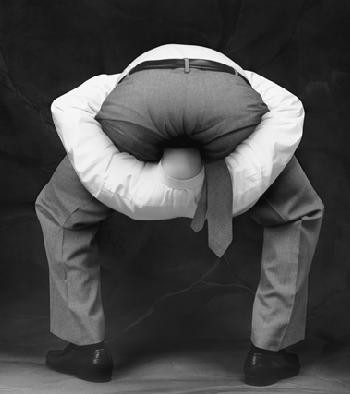 UpdateThe Straits Times
UpdateThe Straits Times makes a reference to China's admission on December 3, 2006. However, it is mentioned under another headline, "Longer wait for donor here, so Singaporean pays $40,000 for China kidney." The article focuses on the relatively "low price" of the organ and its rapid availability, the ethical implications of this on-going atrocity are casually dismissed. News of the Chinese government's complicity in harvesting human organs from executed prisoners
and profiting off them—elsewhere reported half-a-month earlier in papers around the world
with its own headline—is buried in paragraphs six, seven, and eight of the article:
While some kidney failure patients are probably aware that they are wading into the ethical hotbed that is China's so-called "transplant tourism" industry, many do not know where the donated kidney comes from and most do not care.
After years of denial, China recently acknowledged what had been an open secret on the Internet for years—that many of the organs used in the country's transplants are taken from executed prisoners and recipients are high-paying foreigners.
The acknowledgement came weeks after China announced tighter controls over its used of the death penalty."Ethical hotbed"? What a euphemism! What ethical dilemma is there regarding the unauthorized harvesting of a convict's organs? Even if a convict is sentenced to death, the execution completes the punishment process. The body and all its contents are the property of his/her kin. The state has no moral authority to mutilate, plunder, pillage and profit from the corpse. It is wrong, pure and simple. Furthermore, people have been sentenced for death for transgressions as minor as stealing a pig. But, hey, all is well as long as money flows, the ass kissing continues, and the siren call of business opportunities drowns out all else, on this sunny tropical island city
Disneyland with the death penalty.
Post festum,
The Shitty Times.












